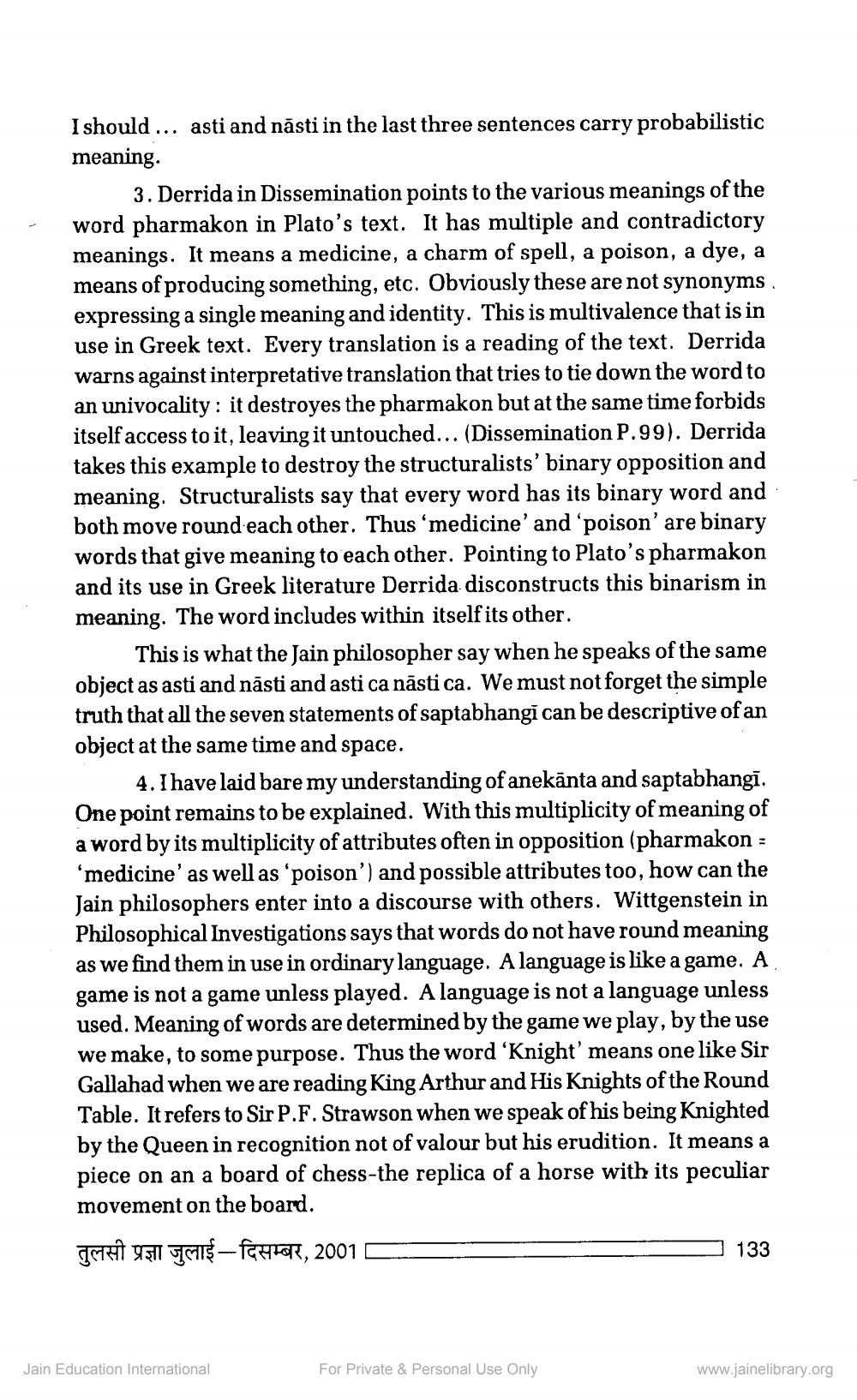________________
I should ... asti and nāsti in the last three sentences carry probabilistic meaning.
3. Derrida in Dissemination points to the various meanings of the word pharmakon in Plato's text. It has multiple and contradictory meanings. It means a medicine, a charm of spell, a poison, a dye, a means of producing something, etc. Obviously these are not synonyms expressing a single meaning and identity. This is multivalence that is in use in Greek text. Every translation is a reading of the text. Derrida warns against interpretative translation that tries to tie down the word to an univocality: it destroyes the pharmakon but at the same time forbids itself access to it, leaving it untouched... (Dissemination P.99). Derrida takes this example to destroy the structuralists' binary opposition and meaning. Structuralists say that every word has its binary word and both move round each other. Thus medicine' and 'poison' are binary words that give meaning to each other. Pointing to Plato's pharmakon and its use in Greek literature Derrida disconstructs this binarism in meaning. The word includes within itself its other.
This is what the Jain philosopher say when he speaks of the same object as asti and nāsti and asti ca nāsti ca. We must not forget the simple truth that all the seven statements of saptabhangi can be descriptive of an object at the same time and space.
4. I have laid bare my understanding of anekānta and saptabhangī. One point remains to be explained. With this multiplicity of meaning of a word by its multiplicity of attributes often in opposition (pharmakon : 'medicine' as well as 'poison') and possible attributes too, how can the Jain philosophers enter into a discourse with others. Wittgenstein in Philosophical Investigations says that words do not have round meaning as we find them in use in ordinary language. A language is like a game. A game is not a game unless played. A language is not a language unless used. Meaning of words are determined by the game we play, by the use we make, to some purpose. Thus the word 'Knight' means one like Sir Gallahad when we are reading King Arthur and His Knights of the Round Table. It refers to Sir P.F. Strawson when we speak of his being Knighted by the Queen in recognition not of valour but his erudition. It means a piece on an a board of chess-the replica of a horse with its peculiar movement on the board. DAH Y511 Iciis - Fotore, 2001 C
133
Jain Education International
For Private & Personal Use Only
www.jainelibrary.org




